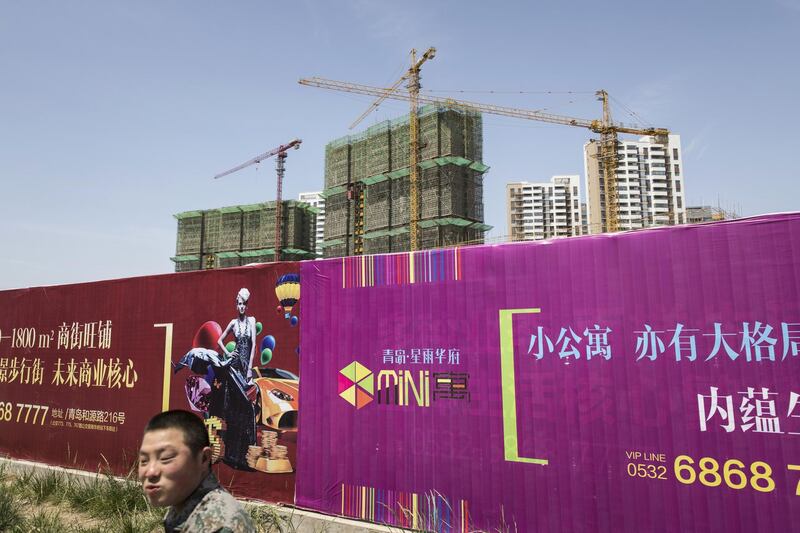Property prices in China rose at the fastest pace in almost two years in August, adding to the likelihood of more government tightening in the housing market.
New-home prices gained 1.49 per cent from the previous month, according to Bloomberg calculations based on data for 70 cities released by the National Bureau of Statistics on Saturday. That compared with a 1.2 per cent increase in July. It was the sixth straight monthly acceleration.
The government is likely to maintain property curbs on fears that any relaxation will lead to another round of price surges, Haibin Zhu, the chief China economist at JP Morgan, said ahead of the data. Officials are seeking to keep housing affordable and limit the risk of destabilising bubbles.
“The government worries a lot,” Mr Zhu said in Hong Kong. “At this stage, there’s no intention to relax the housing tightening.”
Despite this year’s price gains, China’s developers are the gloomiest in eight years, weighed down by a squeeze on financing, a looming property tax and home-purchase curbs, according to a sentiment index compiled by Standard Chartered. Some builders are offering free luxury cars and hefty discounts to speed sales.
_______________
Read more:
Chinese investors are creating new skylines in Cambodia
Is the world ready for a Chinese stock market crash?
_______________
Of the 70 cities, the biggest month-on-month price increase in August was a 3.4 per cent gain in Wuxi, the data show. In Beijing, where more tightening was announced on Thursday, prices were unchanged; in Shanghai, they were up 0.1 per cent.
For Mr Zhu, the biggest worry in the housing sector is the diminished role of market forces in pricing and sales, as the government’s “temporary” administrative restrictions become permanent.
Tightening measures including purchase and resale curbs, increased down payments and price caps have been rolled out in 114 cities, according to brokerage CLSA. Most were imposed after March 2017, a CLSA presentation showed.






